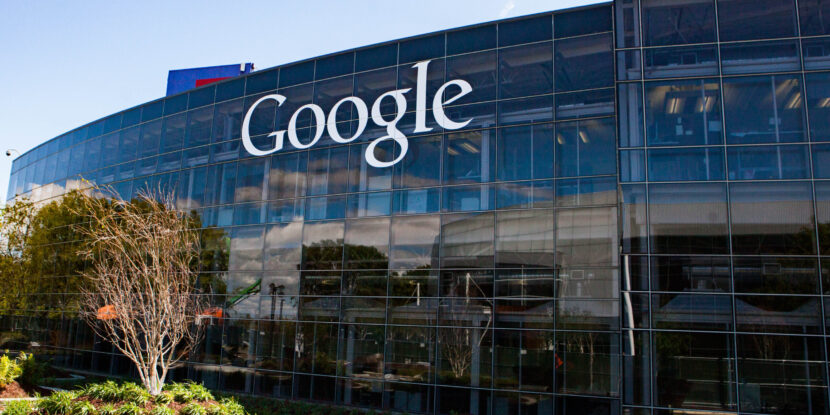Big Tech companies have enveloped every aspect of our lives. There is no escaping them. As Justice Kennedy pointed out, these platforms are “the principal sources for knowing current events, checking ads for employment, speaking and listening in the modern public square, and otherwise exploring the vast realms of human thought and knowledge.”
Unfortunately, platforms can use their respective monopoly power to remove you based on your skin color, sexual orientation, or political views. Why? Because there exists no true competition to their services. As Justice Clarence Thomas lamented in Biden v. Knight First Amendment Institute, we can’t get our news anywhere else as Big Tech’s “network effects entrench these companies” to be our only providers to our news and information. Worse, we give them legal immunity via Section 230 of the Communications Act when doing so.
This concentration needs to be broken up.
One of the most effective tools to address this type of corporate gatekeeping is to treat these firms as common carriers. That designation prevents monopolies from arbitrarily or wantonly denying us access to vital public services, such as public squares.
For the unfamiliar, a common carrier is a person or entity that transports people or property and one that publicly advertises that it does so impartially.
The concept may seem foreign, but you have already benefited from common carriage regulations, especially if you have ever ridden in an airplane or sent a package. For example, an airline (one type of common carrier) cannot refuse you service based on your race, gender, or even political affiliation. Nor can FedEx (another example of a common carrier) deny you service or discriminate against you based on your political beliefs.
Applying those same obligations to Big Tech platforms that have a strong track record of denying services or censoring based solely on their political leanings is long overdue.
The good news is that states are waking up.
Indeed, Ohio’s Attorney General Dave Yost sought a declaratory judgment to treat Google as a common carrier to ensure Buckeyes get fair and honest results when using its Search. AG Yost’s case asks a foundational question: why should it be the case that Google, a bona fide monopolist, be allowed to force-feed you biased feeds or deny you access to information that you want to see?
AG Yost isn’t tilting at windmills here. Google’s total dominion over the search market is tantamount to it having total dominion over our access to vital information. Worse, Google exercises its self-serving censorship abilities with reckless abandon. Given that Google has positioned itself as the arbiter of what information we receive, we need guardrails, like common carrier obligations, to quell the concern.
Yet, Ohio Judge James Schuck doesn’t think Google is a common carrier and has halted AG Yost’s case. He listed two rationales as to why. He first contended that Google “doesn’t transport property.”
But that’s an absurd proposition as Google transports tons of property. Your data being chief among them. Yes, your data is your property and the law recognizes it as such. For example, we enact privacy laws and protect intellectual property to entitle us to dictate how companies can use our data. Our data is the currency of the internet. Even Google recognizes it as property, because if they didn’t, then they would have no need for you to sign a privacy policy or terms of service to hand your data over to them.
Judge Schuck’s second justification was that Google doesn’t hold itself out to be indifferent.
Again, this is another odd claim as it directly contradicts Google’s representations in other court proceedings. Especially in those proceedings where Google invokes legal immunities reserved for passive communications systems, specifically Section 230 (located in the “Common Carrier” title of the Communications Act mind you). As Former Representative Chris Cox (R-CA) and Senator Ron Wyden (D-OR)—generally credited as the authors of Section 230—explain: “Section 230 is not the source of legal protection for platforms that wish to express a point of view.” Thus, Google’s immunity sought under Section 230 requires its indifference.
Even better for Yost’s case, Google goes further by fervently arguing that it does not materially contribute to the speech on their platforms—even when they engage in promoting, blocking, elevating, highlighting, monetizing, de-monetizing, or otherwise pushing that content. Google argued that precisely in Gonzalez v. Google where it asserted that it was not engaging in speech when using its editorial discretion to push ISIS videos nor was it engaging in speech activities when the platform failed to delete those videos.
The Judge in this case flagrantly ignored all of this when issuing his opinion.
As Americans, we fight against concentrated authority, not embrace it. Just look at the structure of our Constitution, which is premised on the need for a separation of powers to ensure that not one branch of government can run roughshod on our democratic process. The same is true for private monopolies—or, as James Madison described them, the “greatest nuisances in Government.” The framers felt that, if left unchecked, monopolies could amass more power than the government itself. It is why we have legal tools and principles, such as common carriage obligations, to thwart the threat they pose to our way of life, especially the ones presented by Google’s monopolization.
For these reasons, the judge is wrong here. Google is a common carrier by every conceivable metric.


